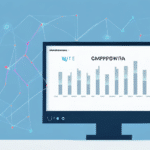Importance of Measuring Unique Visitors in E-Commerce
For e-commerce businesses, tracking unique visitors is a fundamental metric that provides deep insights into website performance and customer behavior. Unique visitor data indicates the number of individual users visiting your site within a specific timeframe, offering a clear picture of your website's reach and effectiveness. This metric is essential for evaluating the success of marketing campaigns, understanding audience engagement, and making informed decisions to enhance your online business strategy.
Understanding Unique Visitor Metrics
Unlike page views or session counts, unique visitors represent distinct individuals who access your website, regardless of how many times they return. This distinction helps in assessing the true audience size and the potential market reach of your e-commerce platform.
Impact on Business Strategy
By analyzing unique visitor data, businesses can identify which marketing channels drive the most traffic, determine popular product pages, and evaluate the effectiveness of their conversion funnels. This information is crucial for refining marketing strategies, optimizing website content, and enhancing user experience to drive higher engagement and sales.
Tools and Techniques for Measuring Unique Visitors
Accurate measurement of unique visitors is achievable through various analytics tools and techniques. Leveraging the right tools ensures precise data collection and insightful analysis.
Google Analytics
Google Analytics is a widely used platform that provides comprehensive insights into visitor behavior, traffic sources, and conversion metrics. Proper implementation of Google Analytics tracking codes is vital for accurate unique visitor measurement.
Adobe Analytics
Adobe Analytics offers advanced features such as real-time data tracking and customizable dashboards, enabling businesses to delve deeper into visitor interactions and trends.
Third-Party Tools
Other tools like Hotjar provide heat mapping and user session recordings, offering additional layers of understanding regarding how visitors interact with your website.
Key Metrics to Track Alongside Unique Visitors
While unique visitor count is crucial, complementing it with other metrics provides a holistic view of your e-commerce performance.
Conversion Rates
Conversion rate measures the percentage of visitors who complete desired actions, such as making a purchase. According to Statista, the global e-commerce conversion rate averages around 2.86%, highlighting the importance of optimizing your conversion funnel.
Bounce Rates
Bounce rate indicates the percentage of visitors who leave your site after viewing only one page. A high bounce rate may signal issues with website content or user experience.
Customer Retention
Tracking customer retention helps in understanding how many visitors return to make additional purchases, fostering long-term business growth.
Analyzing and Interpreting Unique Visitor Data
Collecting unique visitor data is only the first step; effective analysis and interpretation are essential for actionable insights.
Identifying Trends and Patterns
By examining unique visitor trends over time, businesses can identify peak traffic periods, evaluate the impact of marketing campaigns, and spot seasonal variations.
Data-Driven Decision Making
Leveraging unique visitor data alongside other metrics enables businesses to make informed decisions, such as optimizing product offerings, enhancing website navigation, and personalizing marketing efforts.
Challenges in Measuring Unique Visitors
Accurate measurement of unique visitors comes with its set of challenges that businesses need to navigate.
Accuracy Factors
Technical issues like cookie-blocking by browsers, ad-blockers, and incorrect tracking code implementation can skew unique visitor data, leading to inaccurate insights.
Multi-Device Tracking
Visitors often use multiple devices to access websites, complicating the accurate tracking of unique individuals. Implementing cross-device tracking solutions can help mitigate this challenge.
Strategies to Improve Unique Visitor Count
Enhancing your website’s unique visitor count involves a combination of strategies focused on increasing visibility, engagement, and retaining visitor interest.
SEO Optimization
Optimizing your website for search engines is critical for driving organic traffic. This includes keyword research, quality content creation, and ensuring mobile-friendliness. According to Search Engine Journal, effective SEO can significantly boost your site’s visibility and attract more unique visitors.
Paid Advertising
Investing in paid advertising channels like Google Ads or social media platforms can target specific audiences, driving targeted traffic to your website.
Content Marketing
Creating high-quality, relevant content that resonates with your audience can attract new visitors and encourage repeat visits. Content marketing strategies include blogging, video content, and social media engagement.
Future Trends in Unique Visitor Measurement
The landscape of unique visitor measurement is evolving with advancements in technology and changes in consumer behavior.
Artificial Intelligence and Machine Learning
AI and machine learning are increasingly being used to analyze visitor data, providing predictive insights and enhancing data accuracy. These technologies can identify patterns and trends that might be missed by traditional analytics.
Privacy Regulations and Data Collection
With the rise of privacy regulations like GDPR and CCPA, businesses must adapt their data collection methods to comply while still obtaining valuable visitor insights.
Emerging Technologies
The growth of voice search, chatbots, and other interactive technologies will influence how visitor data is collected and analyzed, requiring businesses to stay agile and update their analytics strategies accordingly.
In conclusion, measuring unique visitors is a critical component of understanding and enhancing your e-commerce business. By utilizing the right tools, tracking complementary metrics, and staying informed about evolving trends, businesses can leverage unique visitor data to drive growth, improve user experience, and achieve long-term success.




















